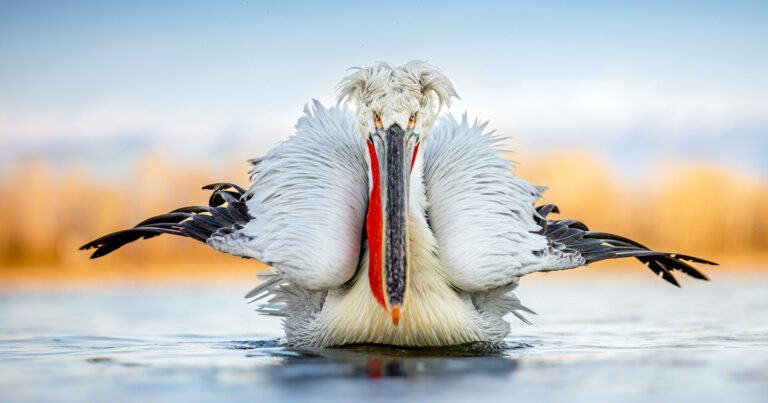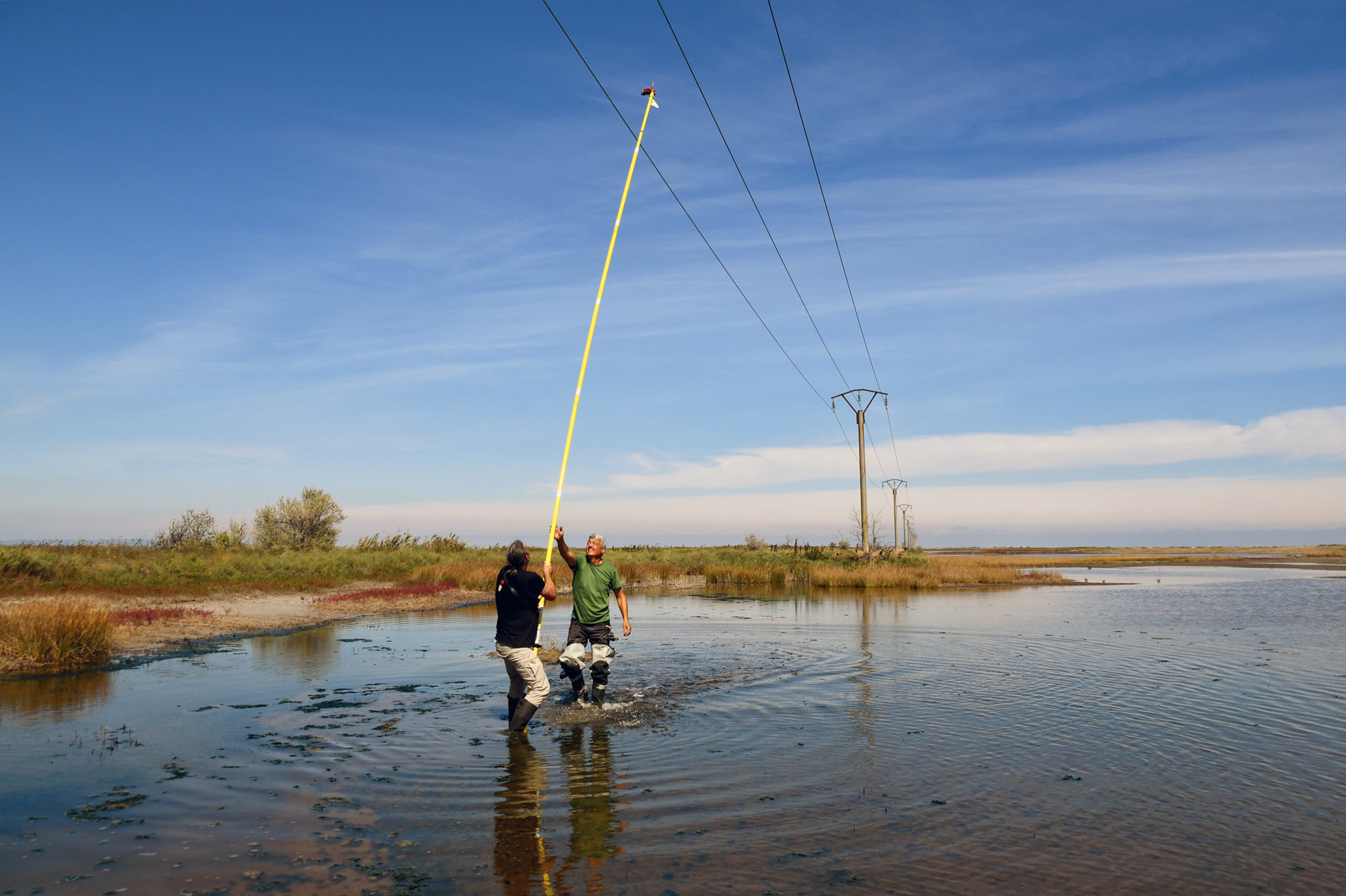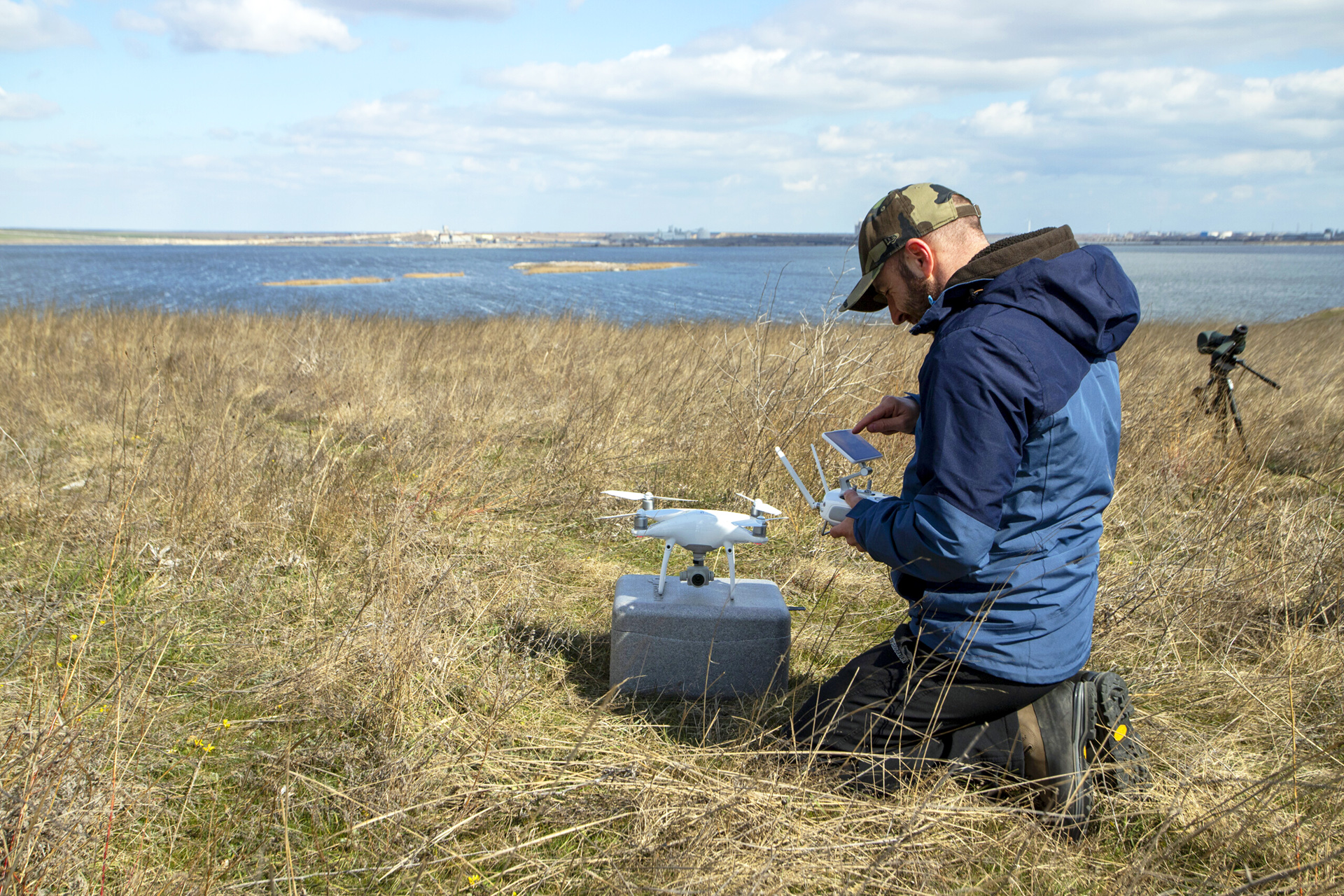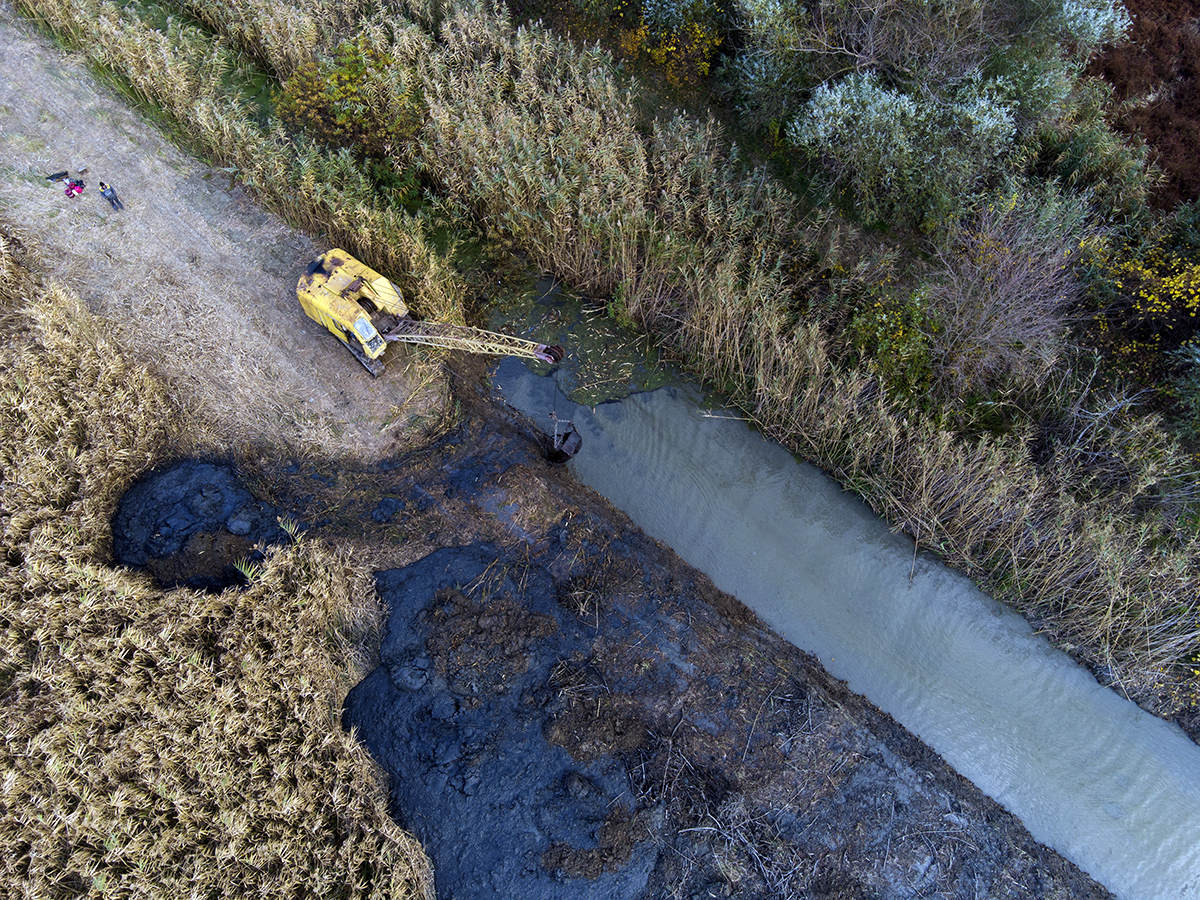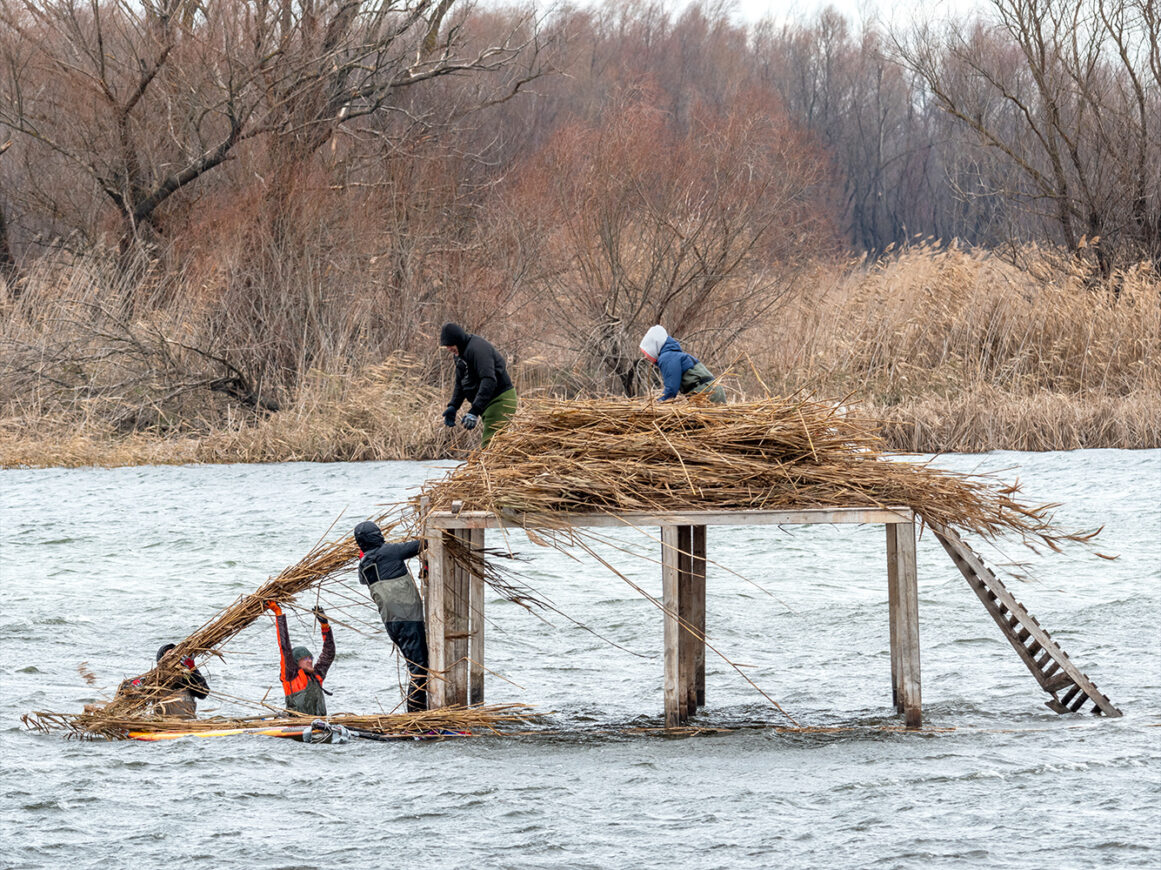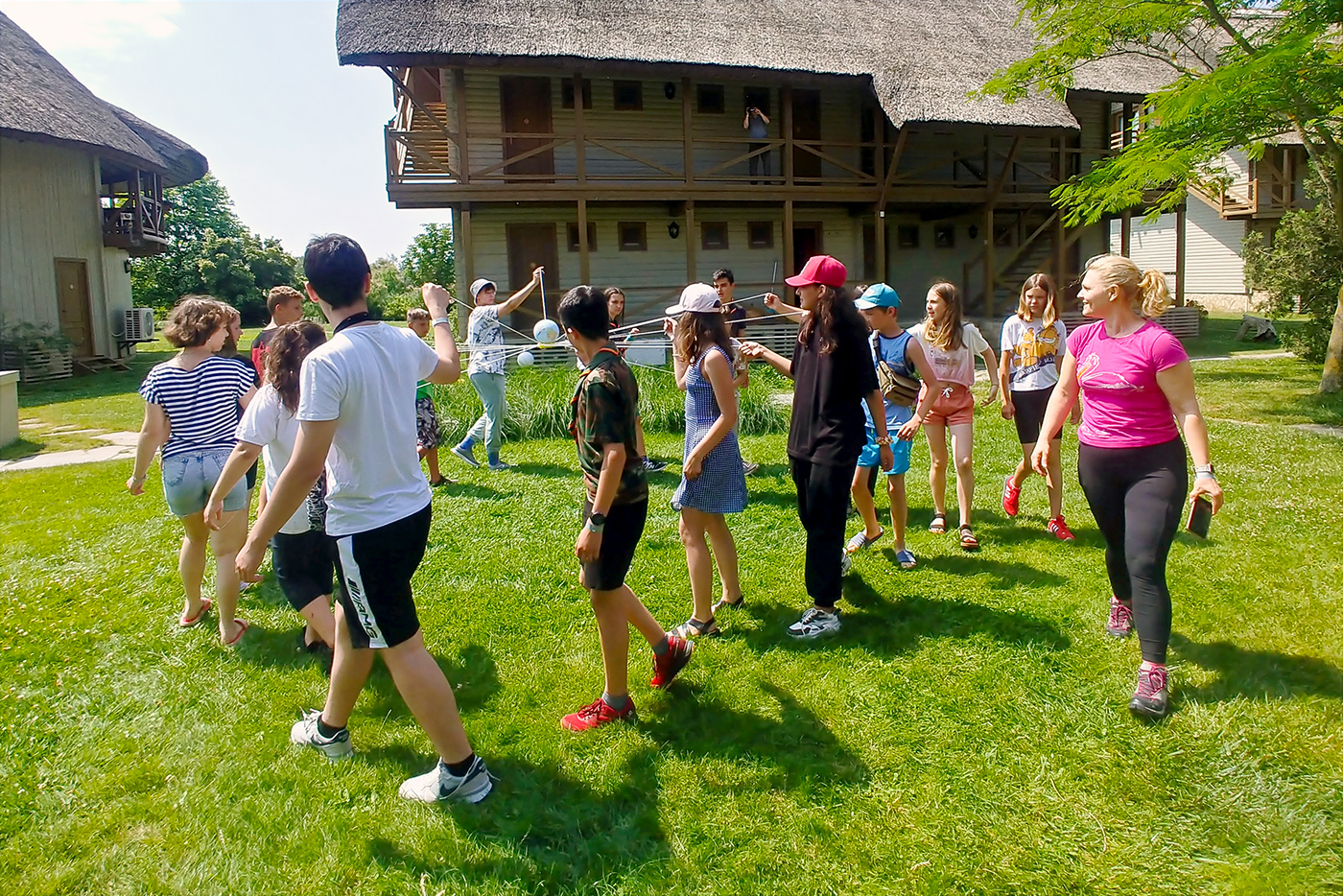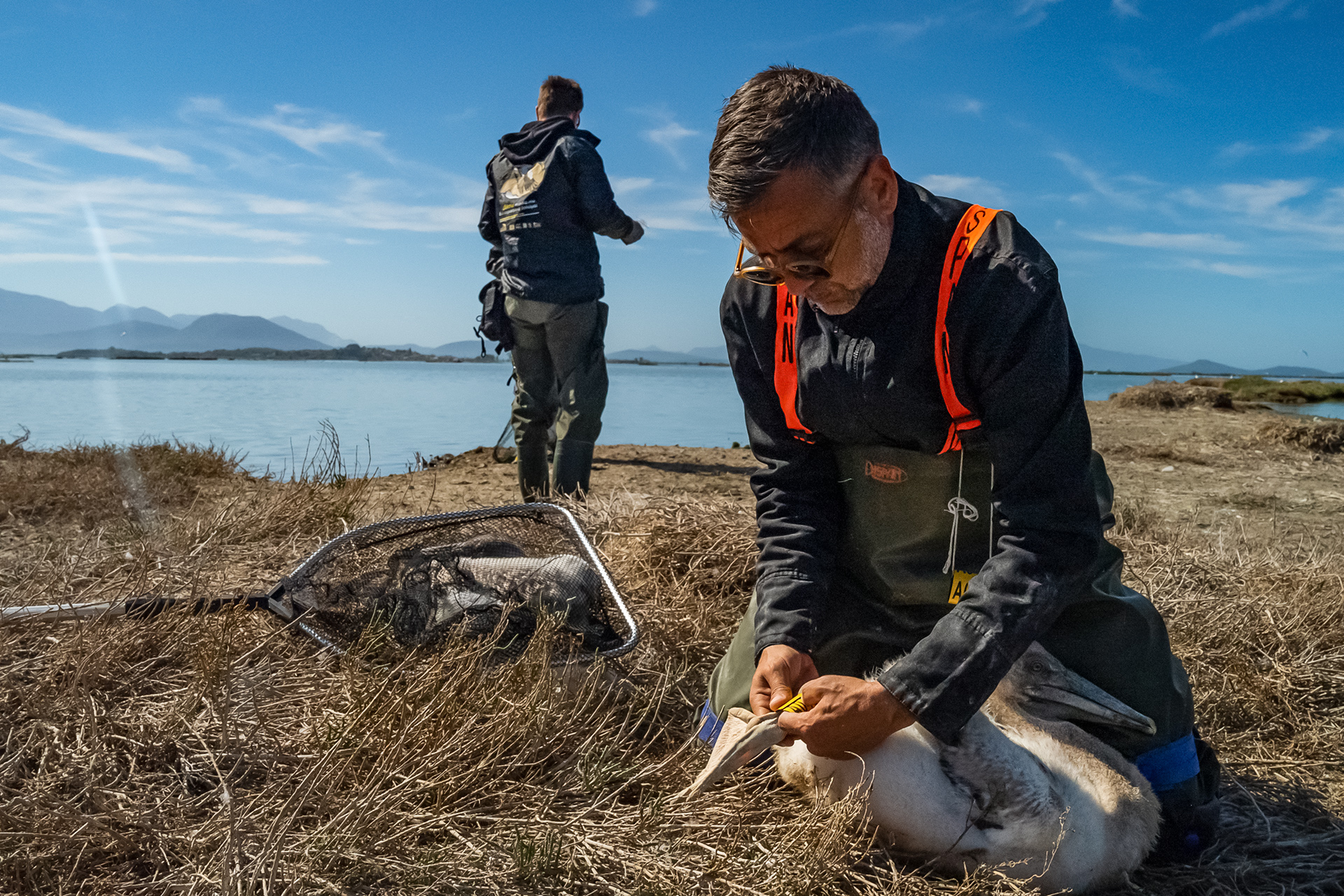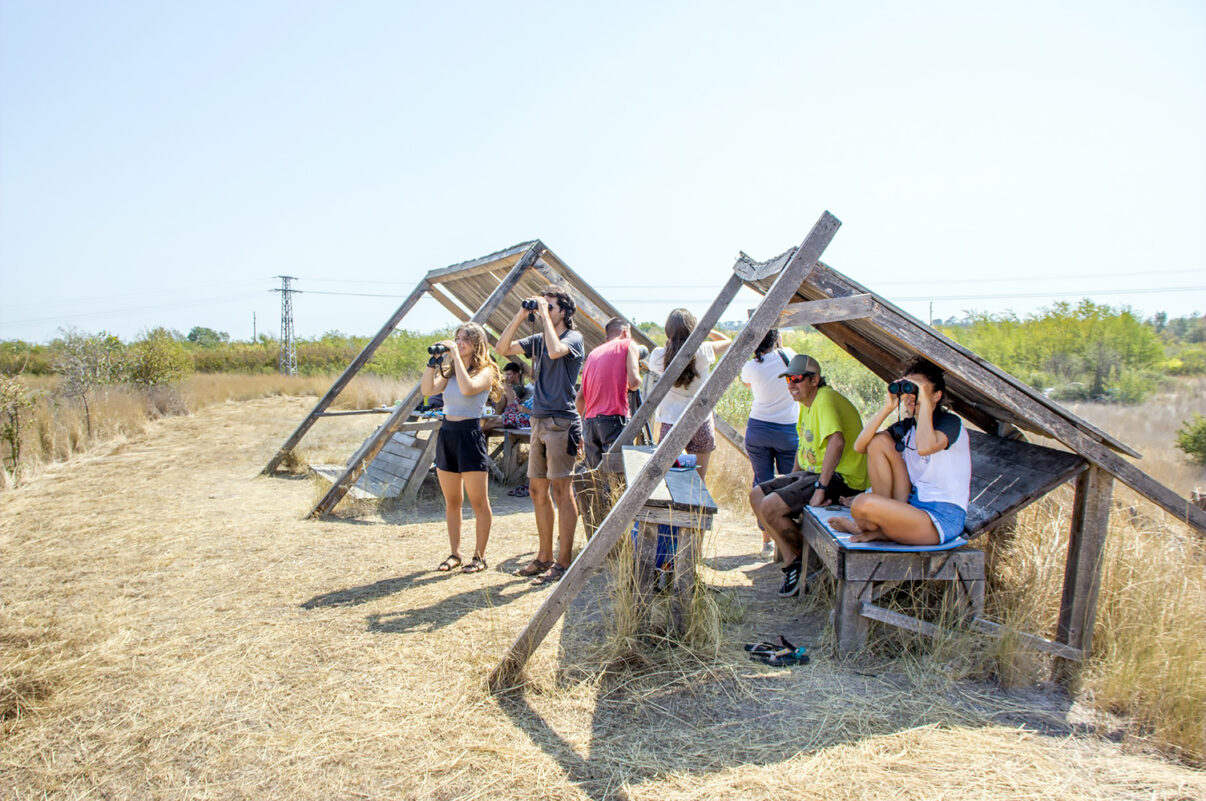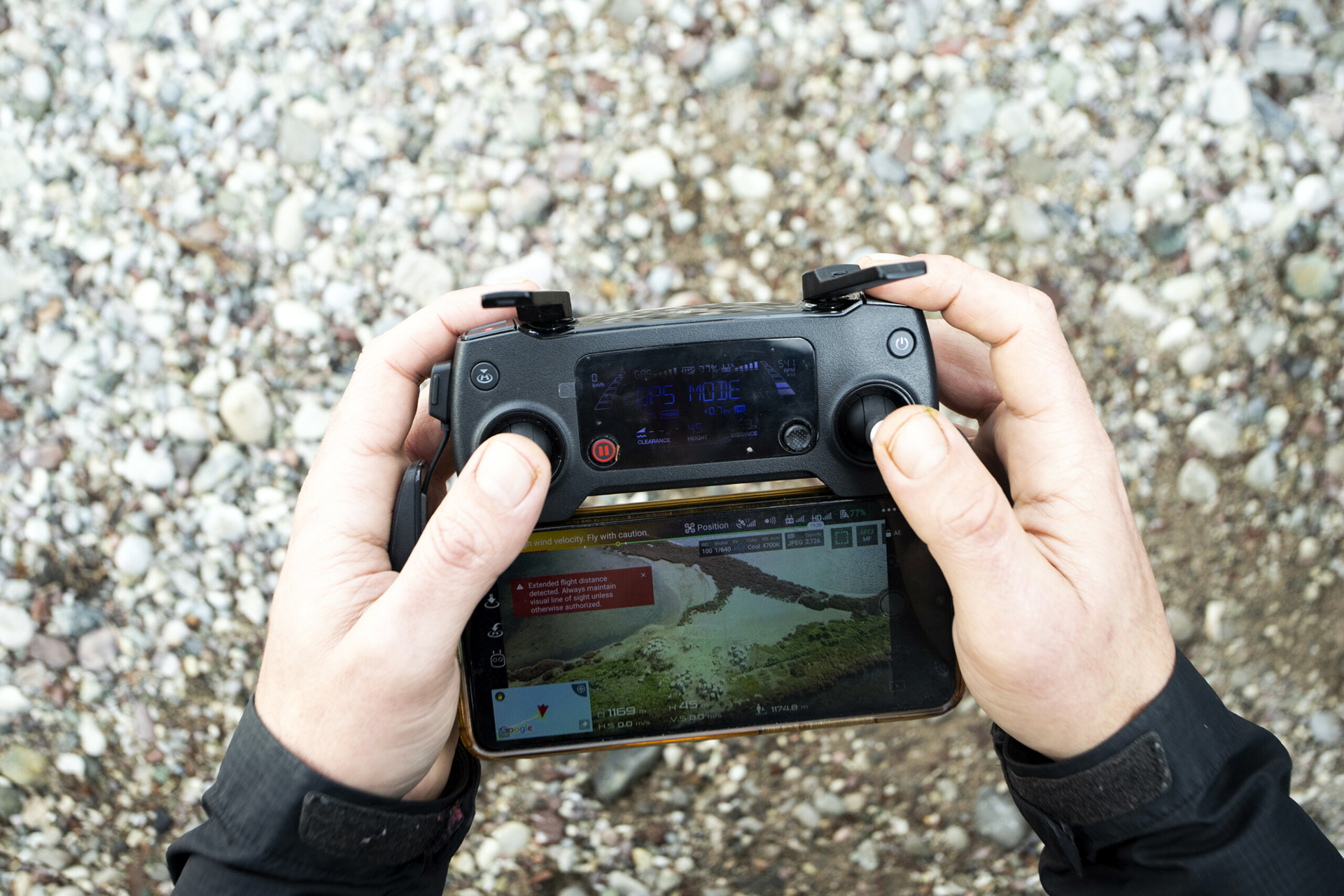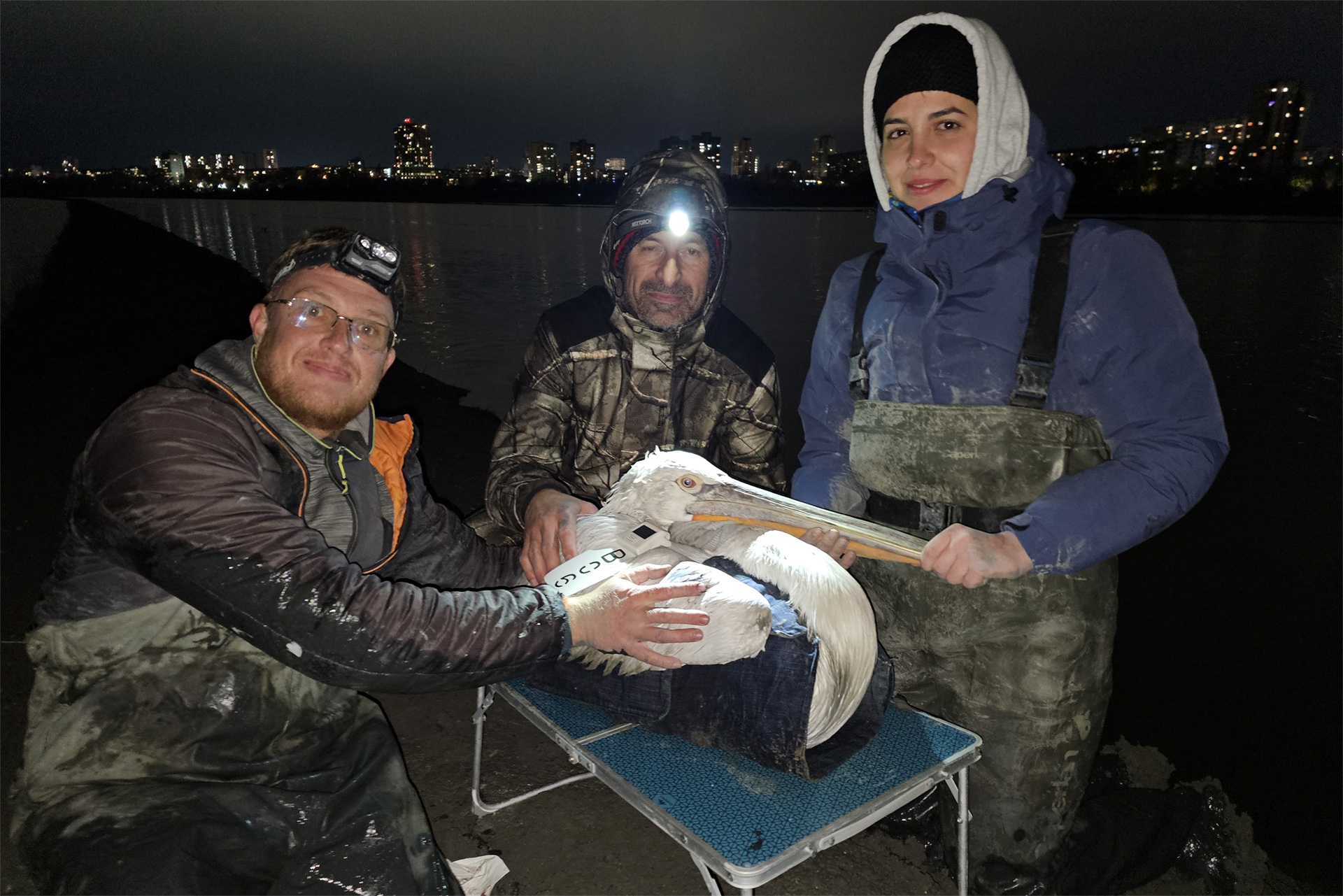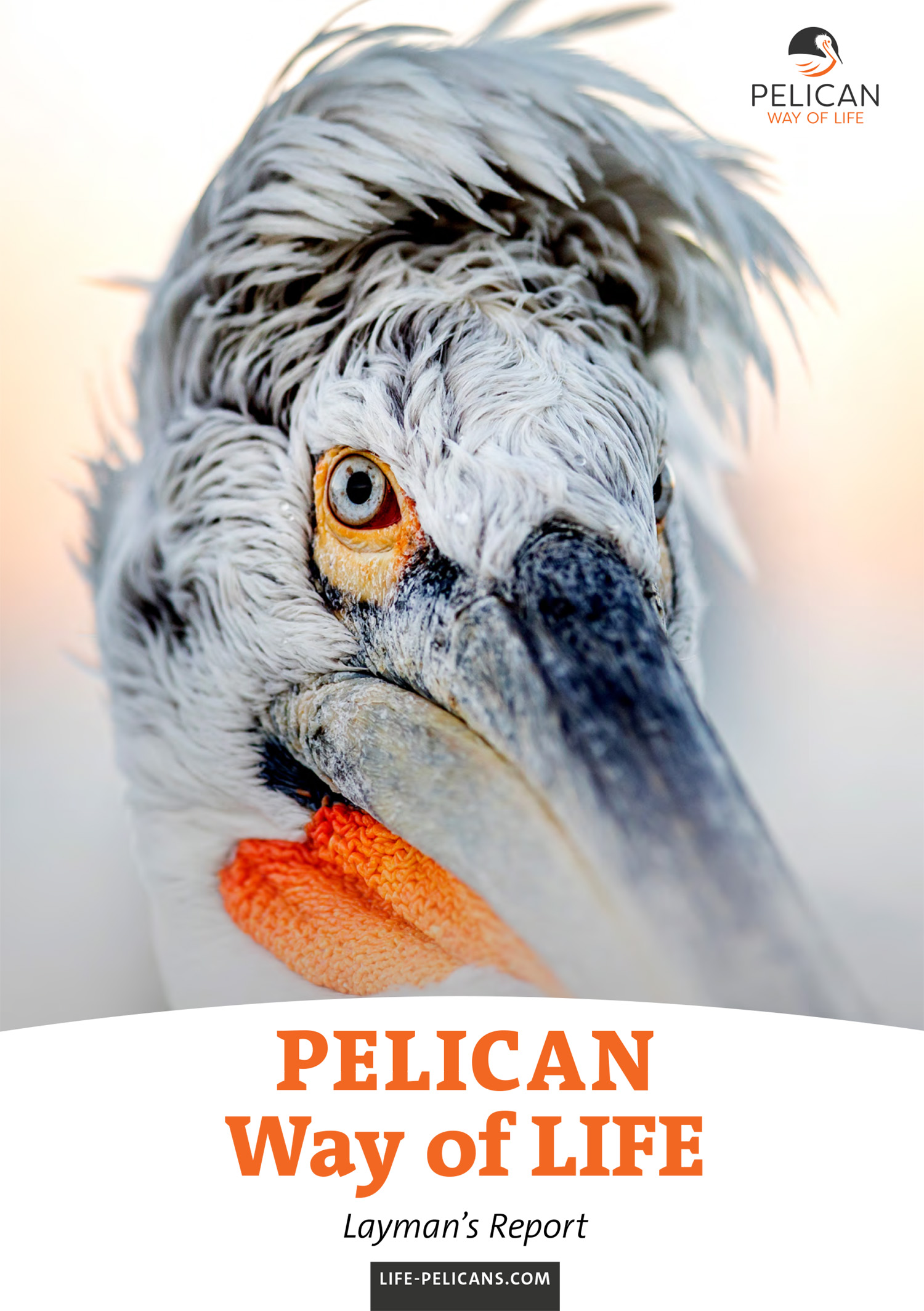Over the past six years, multi-partner rewilding efforts have supported the recovery of endangered Dalmatian pelican populations across southeastern Europe. Coordinated by Rewilding Europe and supported by the European Commission, the “Pelican Way of LIFE” initiative has secured a brighter future for this majestic bird and emphasised the importance of wetland restoration.
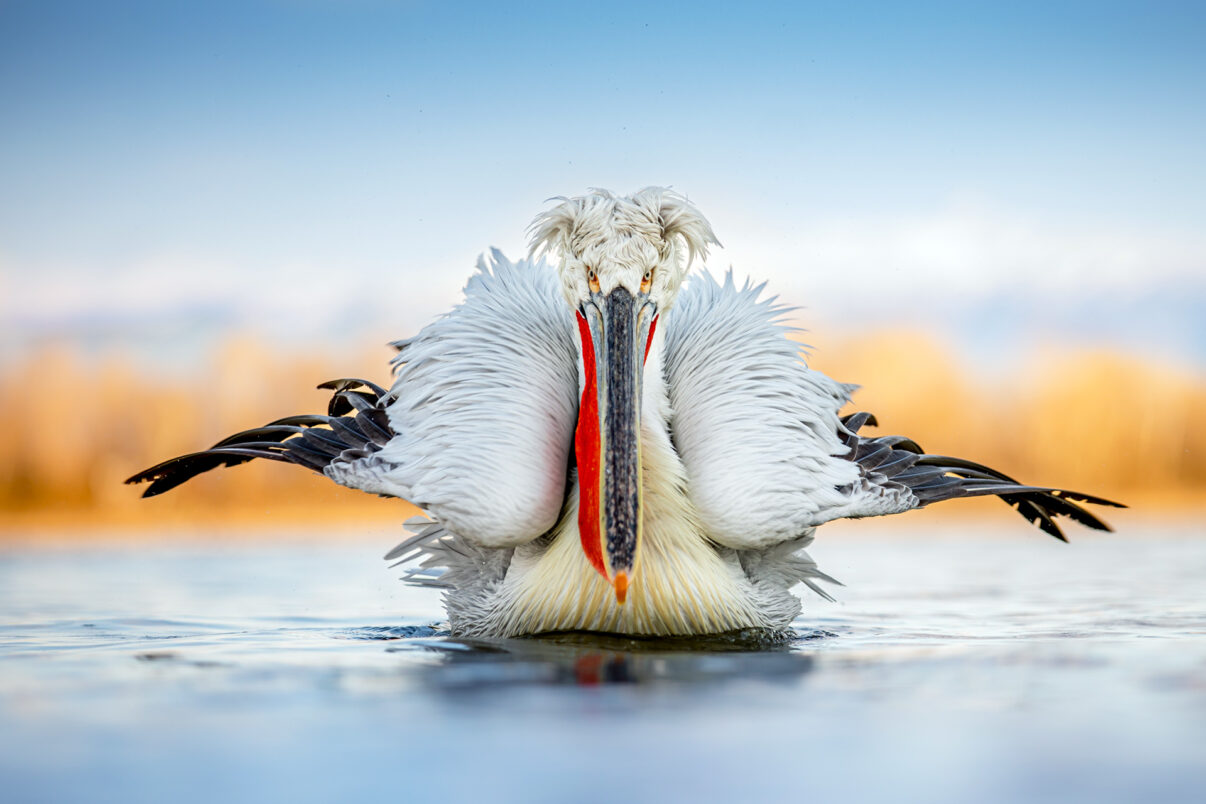
SEAN WEEKLY PHOTOGRAPHY / Rewilding Europe
An iconic indicator species
One of the most impressive breeding birds in Europe, Dalmatian pelicans are ambassadors for vibrant, interconnected wetlands. These gentle giants need access to still waters, with abundant fish populations and extensive flooded and shallow areas. Despite its iconic status, the Dalmatian pelican is extremely vulnerable across its entire geographic range and classified as “Near Threatened” on the IUCN Red List. The main causes of their decline include drained and fragmented wetlands, the destruction of breeding colonies, poaching, and fatal collisions with power lines.
Over the past six years, the multi-partner Pelican Way of LIFE initiative has focused on enhancing the Mediterranean-Black Sea Flyway Dalmatian pelican population. This is located across wetlands in southeastern Europe and currently boasts around 8000 breeding pairs. Co-ordinated by Rewilding Europe, the initiative has seen measures taken to improve breeding and roosting conditions, reduce the risk posed by disturbance and power lines, improve understanding of pelican behaviour, and enhance co-existence through stakeholder engagement.
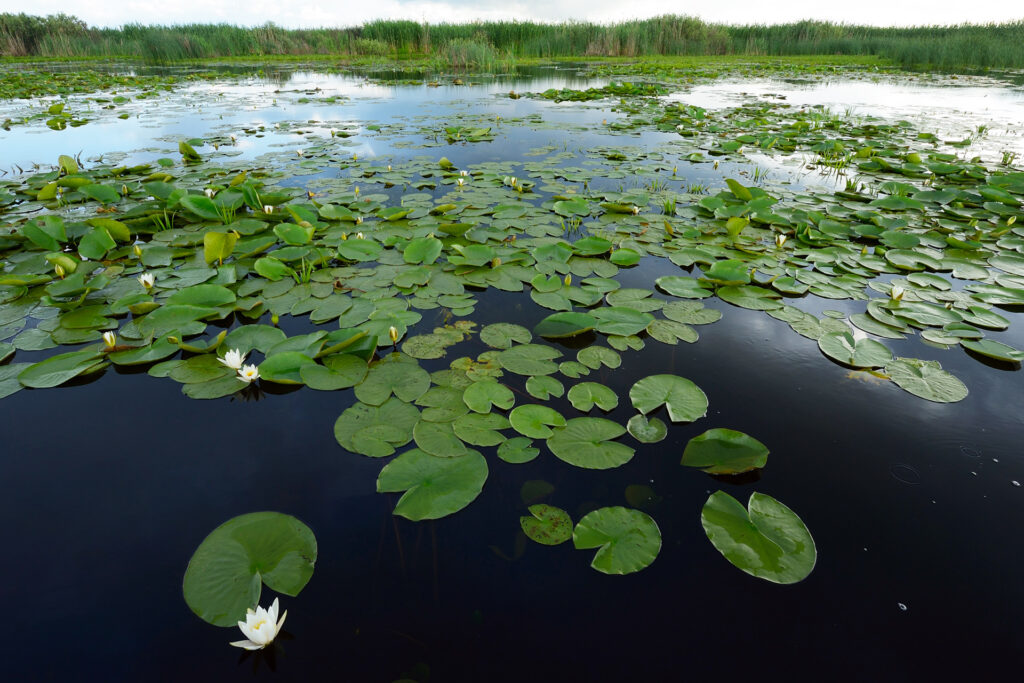
Staffan Widstrand / Rewilding Europe
Positive impact
The measures undertaken through the Pelican Way of LIFE initiative have supported a welcome recovery in Dalmatian pelican populations and laid the foundation for further growth. In 2024, the seventh international pelican census noted a 10% year-on-year population increase across the Balkans, with two newly established breeding colonies in Bulgaria home to over 100 nests in 2025. These new colonies represent a significant step forward in expanding the breeding geography of the species.
“By combining research, habitat restoration, and community engagement, the initiative has improved breeding conditions, reduced key threats, and boosted local support for conserving this iconic species,” says Annette Mertens, Rewilding Landscape Manager at Rewilding Europe.
Working together for pelican recovery
The Pelican way of LIFE initiative was largely funded by the European Commission’s LIFE programme and the Arcadia Fund, the UK-based charitable trust of Lisbet Rausing and Peter Baldwin. In addition to Rewilding Europe, it involved the Bulgarian Society for the Protection of Birds/Birdlife Bulgaria (BSPB), Hellenic Ornithological Society/BirdLife Greece (HOS), Persina Nature Park Directorate (PNPD), Romanian Ornithological Society/BirdLife Romania\ (SOR), Rewilding Romania, and Rewilding Ukraine.
These partners undertook a wide range of actions to improve habitat and mitigate threats at 27 Natura 2000 sites throughout Romania, Bulgaria, Greece and Ukraine, including the Danube Delta rewilding landscape. Capacity building and research were also supported in Turkey, Albania, Montenegro and North Macedonia.
“The Pelican Way of LIFE initiative is a great example of international cooperation, bringing together experts from four countries – and reaching out to four more across the Balkans – to protect the Dalmatian pelican at a population-wide level,” says Annette Mertens.
Wide-ranging efforts in the field
Reducing pelican mortality through collisions with power lines was achieved by installing thousands of bird diverters, which improved the visibility of over 10 km of electric cables along critical flight paths. These lines pose a serious threat to a range of birds – particularly species with limited manoeuvrability such as Dalmatian pelicans. In addition, seven patrol schemes were set up to monitor pelican colonies and prevent disturbance and poaching.
Experts and volunteer groups across Bulgaria and Ukraine also carried out habitat improvements, by enhancing nesting conditions, improving water flow, and installing 12 breeding platforms. This included a number of nesting platforms constructed by the Rewilding Ukraine team in the Ukrainian part of the Danube Delta rewilding landscape. Such platforms serve as temporary nesting sites for pelicans and other birds until broader wetland restoration can take place. Youth groups are helping to maintain these structures, demonstrating the importance of community involvement.
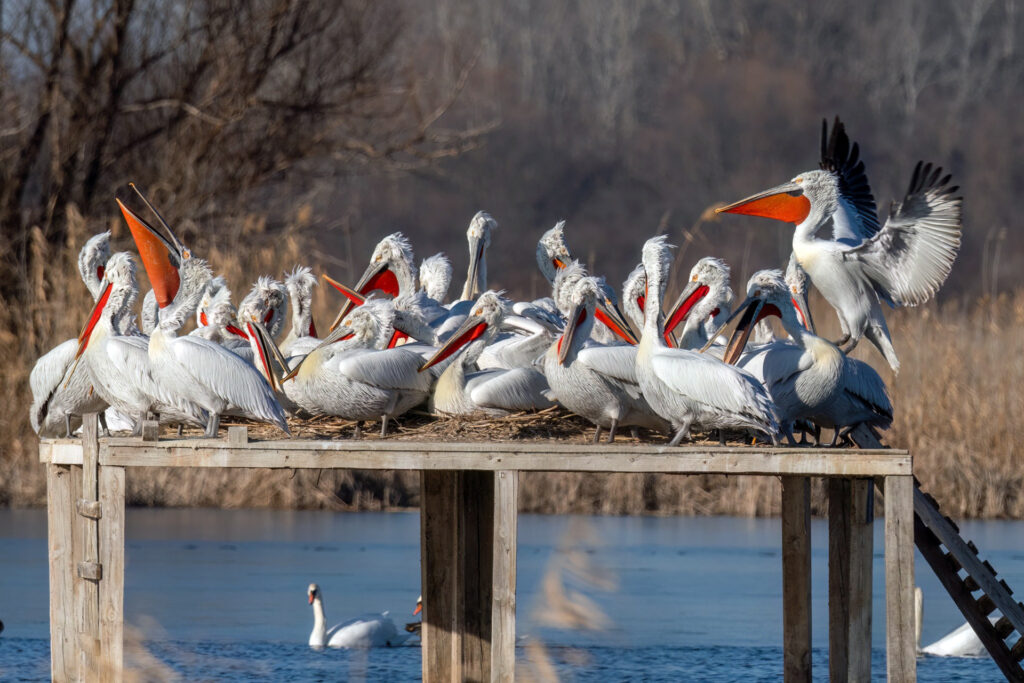
Damyan Petkov
Enhanced engagement and monitoring
Increasing awareness of Dalmatian pelicans and the importance of pelican conservation has also been a key focus of the Pelican Way of LIFE initiative, both within the conservation community and with local stakeholder groups. Regular meetings have helped to reduce illegal activities and identify the best approach to safeguarding the pelicans and the ecosystems they depend on. Interactive workshops, educational programmes, festivals, volunteer-led projects and camps, and engaging exhibitions have encouraged and empowered communities to share their knowledge and skills and embrace this iconic species. With local support, the partnership has also promoted nature-based tourism, which continues to provide communities with socio-economic benefits and encourage sustainable practices.
Over the past six years – as part of the broader monitoring and research focus of the initiative – continuous efforts have been made to ring and tag pelicans, with teams in Greece, Bulgaria, and Romania ringing 300 birds and fitting 24 GPS transmitters. These efforts have already provided critical information on migration routes, feeding grounds, and breeding behaviour, highlighting the incredible journeys made by pelicans and helping to inform future decisions about how best to protect the birds.
A foundation for the future
As outlined in the Pelican Way of LIFE Layman’s Report, the partners involved in the initiative will continue their efforts to build engagement, encourage best practice, restore critical wetland habitats, and improve connectivity to support fragmented pelican populations. Efforts to restore wetlands will not only benefit pelicans, but myriad other wildlife species. They will also deliver a range of benefits to people, from improved water quality to more abundant fish populations. Around 80% of European wetlands have disappeared over the last century, while those that remain are largely degraded due to human pressures and highly vulnerable to climate change.
A unified monitoring approach will also be continued across all the countries involved, while other achievements can be replicated in future initiatives, such as patrols to protect breeding colonies and measures to mitigate power line collisions. Nature-based tourism will continue to benefit local people, while emphasising the need for more formal habitat protection.
Pelican Way of LIFE Layman’s Report
“Through this initiative a range of partners have come together to tackle key threats to Dalmatian pelicans in southeastern Europe, leading to the establishment of new colonies,” says Rewilding Ukraine Executive Director Mykhailo Nesterenko. “The growing support from local communities, particularly among younger people, gives us hope that these efforts are laying a strong foundation for the future of this majestic species. We will continue monitoring our impact and working to reduce remaining threats, ensuring Dalmatian pelicans are protected for generations to come.”
The Pelican Way of LIFE initiative was coordinated by Rewilding Europe and funded by the LIFE Programme of the European Union and Arcadia, the charitable fund of Lisbet Rausing and Peter Baldwin, with the assistance of the Whitley Fund for Nature in Bulgaria, and the Green Fund in Greece.
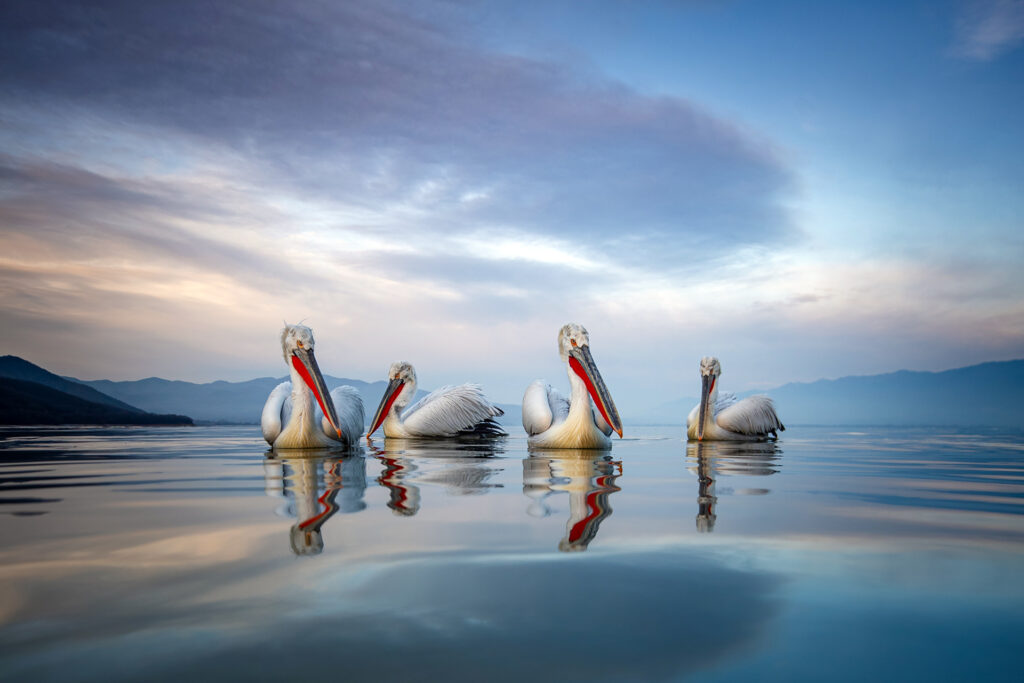
Sean Weekly / Rewilding Europe

